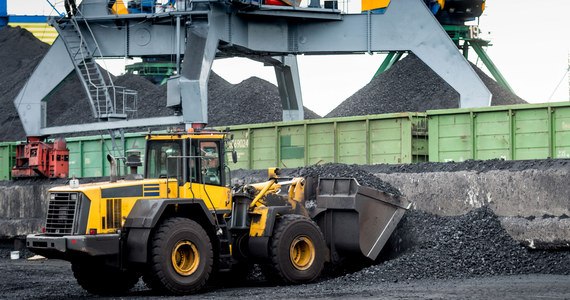The current crisis could either regulate the situation in Poland’s energy sector by rapidly withdrawing coal assets in line with market signals, or strengthen Poland’s position as a poorly reputed coal-dependent country with ever higher financial costs.
According to the think tank, subsidizing mines and covering losses for NABE’s CGUs for several years or several dozen means very high costs for the national budget. It is estimated that losses from NABE, which will have to be covered by tax-funded public aid or energy bills, could exceed PLN 31 billion by 2040.
In 2020, the hard coal sector recorded losses of more than 4.4 billion PLN. WiseEuropa reports that on this basis, it is possible to estimate the approximate initial annual value of the subsidies that the hard coal mining sector will have to receive at around PLN 6 billion.
Bukowski emphasizes that the annual cost of both solutions in the forecast horizon will thus exceed the spending of the state budget on culture or social assistance, which in 2021 amounted to PLN 3.1 billion and PLN 4.1 billion, respectively.
The coal disposal process proposed by the national authorities is separate from market laws and economic factors. Generating emissions means that a high expenditure on CO2 emissions rights has to be incurred. The cost of certificates has already reached more than 80 euros per ton, and there have already been days when their prices rose above 90 euros. Another upward path is inevitable.
– The creation of NABE also means a large concentration of generating units in the hands of one entity, thus weakening competition among electricity producers, which will inevitably affect energy prices – WiseEuropa estimates.
The report indicated that the establishment of the agency will have a negative impact on energy prices in the long run, as it will involve a slower withdrawal from the market for unprofitable subsidized sources and thus slower entry of new, cheaper sources into the market. This would increase the overall costs of maintaining the power system.
Bukowski argues that it is not necessary to establish a NABE to ensure a safe power supply to the system. One option is to support the strategic reserve on a competitive basis, rather than through ownership restructuring. – In the context of EU state aid regulations, it would be easier to implement an open competitive mechanism for different entities than a solution aimed at state aid for a single enterprise with a dominant market position – wrote the head of WiseEuropa.
According to the think tank, the appointment of a single consolidated entity is also not necessary to facilitate access to investment funds for energy companies. The difficulties they face in accessing capital are not due to the fact that they have carbon assets, but to the financial sector’s concerns that these assets can be held and backed against economic accounting. Thus the stated goal of creating NABE can be achieved by adopting credible plans to convert and withdraw unprofitable coal assets within existing companies – says Bukowski.
Poland should accelerate transformative activities, provide companies with appropriate support mechanisms, stimulate private business for change, ensure a stable legal environment and remove regulatory barriers. Meanwhile, national authorities are at present giving the impression that they are trying to avoid change, and “buy” themselves social peace as such.
BUSINESS INTERIA is on Facebook and you are up to date with the latest happenings
The Energy Sector Transformation Project envisages the purchase by the State Treasury of all power generation related assets in coal and lignite power plants from PGE, Enea and Tauron. The state treasury has to consolidate the assets into a single entity. The integrator will be PGE GiEK, which will operate under the name of the National Agency for Energy Security (NABE).
According to the plan adopted by the government, the hard coal mines in Poland will operate until 2049. Until then, they will benefit from state aid that will cover the losses they incur.
Monica Borkoska

Echo Richards embodies a personality that is a delightful contradiction: a humble musicaholic who never brags about her expansive knowledge of both classic and contemporary tunes. Infuriatingly modest, one would never know from a mere conversation how deeply entrenched she is in the world of music. This passion seamlessly translates into her problem-solving skills, with Echo often drawing inspiration from melodies and rhythms. A voracious reader, she dives deep into literature, using stories to influence her own hardcore writing. Her spirited advocacy for alcohol isn’t about mere indulgence, but about celebrating life’s poignant moments.



![Beginning in March, ZUS will transfer these amounts to seniors. Quotation and pensions without tax! [27.12.21] Beginning in March, ZUS will transfer these amounts to seniors. Quotation and pensions without tax! [27.12.21]](https://www.moviesonline.ca/wp-content/uploads/2021/12/Beginning-in-March-ZUS-will-transfer-these-amounts-to-seniors.jpg)
![Calculation of post-linkage pensions in 2023. Table [19.12.2022] Calculation of post-linkage pensions in 2023. Table [19.12.2022]](https://www.moviesonline.ca/wp-content/uploads/2022/12/Calculation-of-post-linkage-pensions-in-2023-Table-18122022.jpg)





